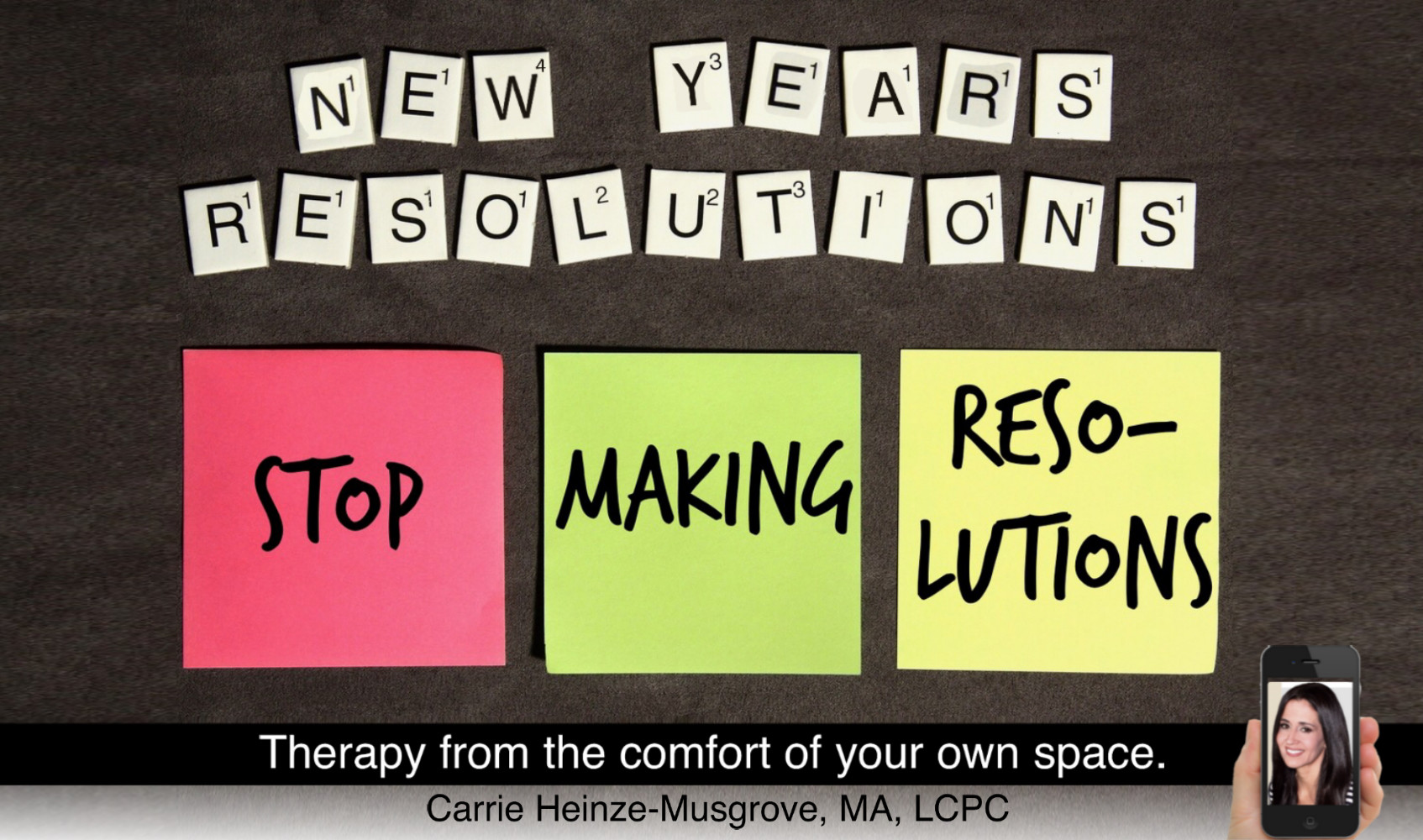With the New Year in full swing and the holidays behind us, many of us have already begun the process of reflecting back over the past year and re-evaluating our life choices.
Though New Years can be a time of celebration and cheer, many of you are facing difficult circumstances. Are you entering the new year with apprehension or anxiety?
The New Year seems like a perfect opportunity to start fresh and to begin making those changes that you have been putting off.
Get out of debt. Quit smoking. Reduce stress. Get in shape. Start an exercise program. Learn something new. Lose weight. Get organized. Quit an addiction. Get more sleep. De-clutter. Spend less time online. Make more time for family. Become more confident. Be more social. Learn how to defend yourself. Be more responsible. Get more control over your reactions. Stop worrying about what people think about you.
Shortly after the ball drops, the champagne toast and Auld Lang Syne, we start the journey of doing this or stopping that. For the majority of us, our ambitious plans fall short sometime in mid January if not sooner. Research shows that only 8% of people who make a New Year’s resolution are able to meet their goal.
What is it about a new year that makes us think it can be a catalyst for major changes in our lives? Messing up and promising to do better next time may be a uniquely human instinct. It has no particular season, but in jumping on the New Year’s Resolution bandwagon appears to be the thing to do.
We seem to obsess on images of a blank slate filled with nothing but opportunities. A brand new calendar with 365 days of prospects.
If you happen to be with the 92% majority of us who fail at resolutions, don’t stress. Here’s why…
3 reasons New Year’s Resolutions don’t work.
1. Resolutions are typically based on what you think you “should” be doing. “Should” implies that whatever you are currently doing, thinking, or feeling is wrong. But “should” rarely leads to change. It simply makes us aware of some perceived inadequacies, shortcomings or deficiencies in ourselves. This is a surefire way to make you feel judged, shamed and, ironically, less inclined to actually change. For example, telling yourself “I SHOULD lose weight” has probably never actually helped you lose weight.
2. Unrealistic Resolutions. It is hard enough to make changes in our life and accomplish what we desire. If your resolution is unrealistic, you are setting yourself up for failure. In setting resolutions, we don’t take a step back and consider that perhaps our ambitions and expectations are not reasonable.
The consequences of unrealistic goals are significant. Not reaching goals results in negative emotions such as disappointment, frustration and feeling like a failure. It also makes you more likely to quit. You may fantasize about that six-figure job, but can you really make it happen before the end of the year? And if you don’t, how are you going to feel about yourself?
3. Self-sabotaging. The expression “you are your own worst enemy” rings true for many. “Why, why, why do I do this to myself?” Low self-esteem and low self-worth makes people believe they don’t deserve happiness. Maybe we are so used to things never working out for us, that we stop doing that one thing that makes us feel great. Perhaps if we feel something is bound to fail because it’s ‘too good to last’, we might engineer its failure to somehow maintain a sense of control.
Whether caused by fear, self-hatred, complacency or inflexibility, the negative critic casts doubt on our abilities and undermines our desires. Self-sabotaging tells us we can’t and limits our ability to move toward our goals.
So what can you do? Here are some tips on what does work.
1. Doing something is better than doing nothing.
Focus on the present. Start with a behavior that is so small it seems easy and reasonable to do it each day. What’s the one thing you can do today, right now, to work towards your goal?
If you want to start running, start with something easy like walking around the block. If you want to read more books, start by reading two pages every night. If you want to finally start meditating, commit to one minute each morning. After a month, you can move up to two minutes. Any effort towards your goal is better than no effort.
2. See the shades of gray.
Many of us have a very black and white attitude. It’s all or nothing. Too many of us see this as “I’ve either accomplished my goal” or “I’ve failed.” This oversimplification causes massive emotional swings. There is gray area. To see shades of gray is very helpful in tackling goals.
For example, if your goal was to send out 10 resumes this week and you only sent out 4, congratulate yourself on the process and reward yourself for the effort. You are more likely to continue to move forward with positive reinforcement. You can’t berate yourself into accomplishments or success. With friends, we often offer kindness, praise, warmth and positive feelings, but most people don’t speak to themselves that way. Commit to offering that same kindness and compassion to yourself.
3. Schedule and Prioritize.
Some of you may have decided you can’t find the time to achieve your goals. At any given time, we all have multiple things we focus on in our lives. If we put all these focuses before our goal, we won’t ever find the time for our goal.
But here’s the thing… No one ever finds the time. We choose the time. We all choose to spend our time the way we do, whether that’s cleaning out your closet or lying on the couch. There’s only so much time in the day. At some point, we’ve got to prioritize, and if we make our goal our top priority, we’ll make the time. Start by actually scheduling tasks toward you goal into your calendar.
4. Make your goals specific. People may say “I’m going to try to get my finances in order.” What does that actually mean? Do you want to be debt free? Are you going to start a savings? Will you invest? Do you need a financial planner? Are you going to save for you retirement? How will you reduce expenses?
Use the classic goal system that makes goals specific, measurable, achievable, relevant and time-bound (SMART). Think about what is realistic and how you can move in that direction. It’s not that you can’t have those lofty goals, but bring them down and make them concrete.
Once you have a specific goal and action plan, I would encourage you to get started on the process. People who make consistent progress toward meaningful goals live happier more satisfied lives than those who do not.
If all of this still feels overwhelming or if your struggles appear to run a bit deeper, therapy may be a good option. Therapy helps you with changes and keeps you working toward goals. A good therapist will help you set and achieve your goals much more quickly than would have otherwise been possible.
Carrie






